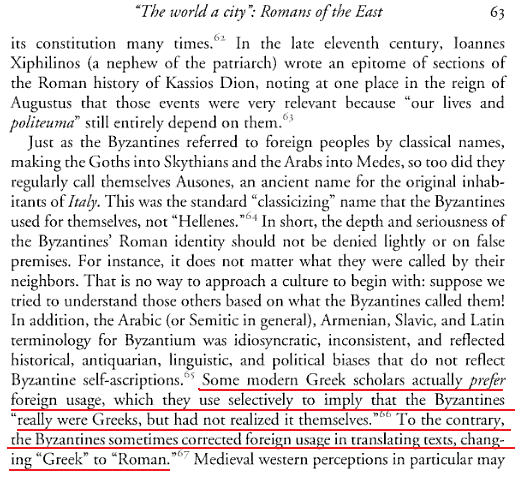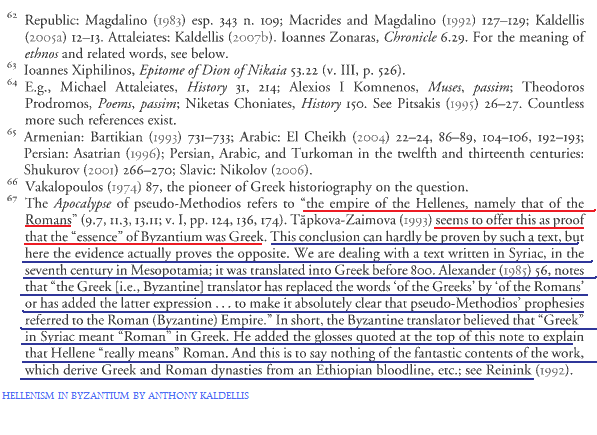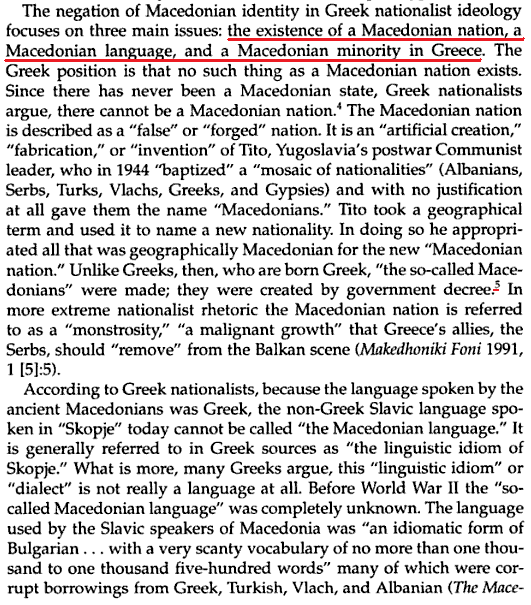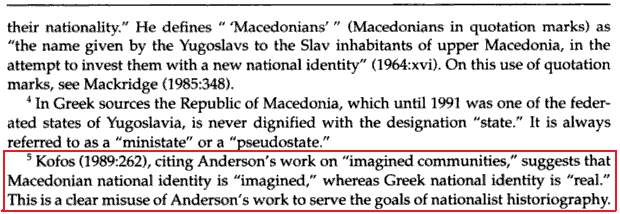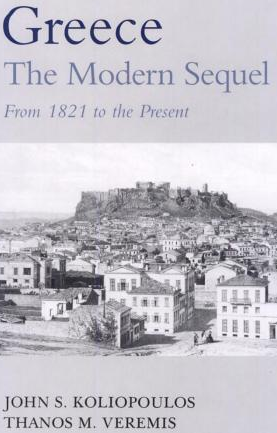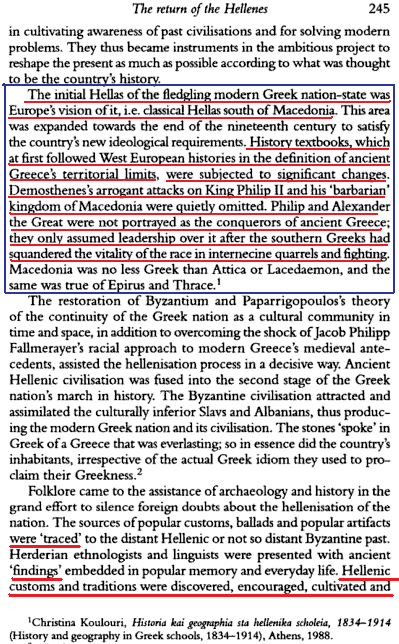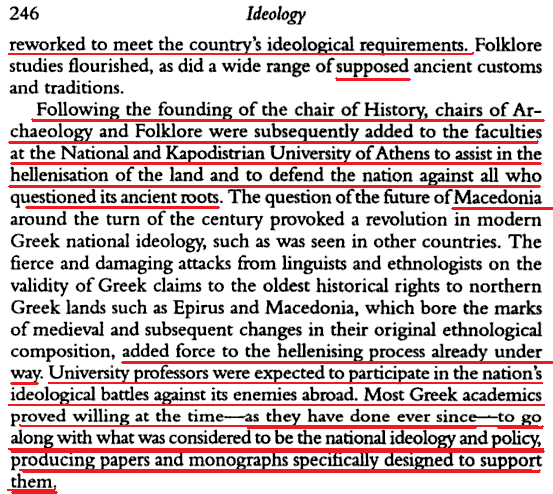Bratot
Стоик и Машкртник!
- Член од
- 27 јануари 2007
- Мислења
- 17.089
- Поени од реакции
- 4.499
Во топиков можеме да се осврнеме на грчките финансирања на разни трудови од различни професори, обично класичари на историјата, во чии трудови основниот услов треба да биде служењето на грчкиот интерес.
Затоа, би ве замолил малце да “прокопате“ по нетов и да ги откриваме купените “историчари“.
Веројатно, верувам и вам ви текнало, дека најголемиот број од нив се потписници на она скандалозно писмо до Обама, па така полека можеме да им се намериме по име и презиме.
Да започнеме со авторот Paul Cartledge кој им е најомилен на циганите за цитирање, а своевидно е и најтипичен проѕирен пример за платена пропаганда која треба да им одговара на грчките мегаломански интереси:
His work has even seen him awarded two Greek honours - he is a holder of the Gold Cross of the Order of Honour and an Honorary Citizen of (modern) Sparta. Besides the Leventis Professorship, he holds a visiting Global Distinguished Professorship at New York University, funded by the Greek Parliament.
The new chair has been endowed by a generous donation from the Cyprus-based Leventis Foundation. Established in 1979 as a result of provisions made by Anastasios G. Leventis, the Foundation aims to support educational, cultural, artistic and philanthropic causes with an emphasis on Greek and Cypriot cultural heritage.
http://www.admin.cam.ac.uk/news/dp/2008100701
Еве и нешто друго, Грчкото министерство го финансира универзитетот Колумбија за нивните "Hellenic Studies":
These Program in Hellenic Studies events were organized by Elena Tzelepis and Karen Van Dyck with the administrative support of the Classics Department in collaboration with the Columbia University community and funded by the Greek Ministry of Culture. Our language teaching position was funded by the Onassis Public Benefit Foundation, and the Greek Ministry of Foreign Affairs.
http://www.columbia.edu/cu/hellenicstudies/2002-2003.html
И нешто повеќе за учеството на грчкиот Парламент:
On constitutional grounds, the Greek Parliament has a key role in cultural affairs, notably, passing legislation on issues pertaining to cultural heritage and the arts, which are introduced by the Minister of Culture. In addition, its Standing Committee for Culture and Education has an important role in supervising the implementation of policies and programmes of the Ministry of Culture and its agencies; issues relevant to foreign cultural policy, on the other hand, are addressed via the Standing Committee on Greeks Abroad or the External Affairs Standing Committee of Parliament.
http://www.culturalpolicies.net/web/greece.php?aid=22
Затоа, би ве замолил малце да “прокопате“ по нетов и да ги откриваме купените “историчари“.
Веројатно, верувам и вам ви текнало, дека најголемиот број од нив се потписници на она скандалозно писмо до Обама, па така полека можеме да им се намериме по име и презиме.
Да започнеме со авторот Paul Cartledge кој им е најомилен на циганите за цитирање, а своевидно е и најтипичен проѕирен пример за платена пропаганда која треба да им одговара на грчките мегаломански интереси:
His work has even seen him awarded two Greek honours - he is a holder of the Gold Cross of the Order of Honour and an Honorary Citizen of (modern) Sparta. Besides the Leventis Professorship, he holds a visiting Global Distinguished Professorship at New York University, funded by the Greek Parliament.
The new chair has been endowed by a generous donation from the Cyprus-based Leventis Foundation. Established in 1979 as a result of provisions made by Anastasios G. Leventis, the Foundation aims to support educational, cultural, artistic and philanthropic causes with an emphasis on Greek and Cypriot cultural heritage.
http://www.admin.cam.ac.uk/news/dp/2008100701
Еве и нешто друго, Грчкото министерство го финансира универзитетот Колумбија за нивните "Hellenic Studies":
These Program in Hellenic Studies events were organized by Elena Tzelepis and Karen Van Dyck with the administrative support of the Classics Department in collaboration with the Columbia University community and funded by the Greek Ministry of Culture. Our language teaching position was funded by the Onassis Public Benefit Foundation, and the Greek Ministry of Foreign Affairs.
http://www.columbia.edu/cu/hellenicstudies/2002-2003.html
И нешто повеќе за учеството на грчкиот Парламент:
On constitutional grounds, the Greek Parliament has a key role in cultural affairs, notably, passing legislation on issues pertaining to cultural heritage and the arts, which are introduced by the Minister of Culture. In addition, its Standing Committee for Culture and Education has an important role in supervising the implementation of policies and programmes of the Ministry of Culture and its agencies; issues relevant to foreign cultural policy, on the other hand, are addressed via the Standing Committee on Greeks Abroad or the External Affairs Standing Committee of Parliament.
http://www.culturalpolicies.net/web/greece.php?aid=22







